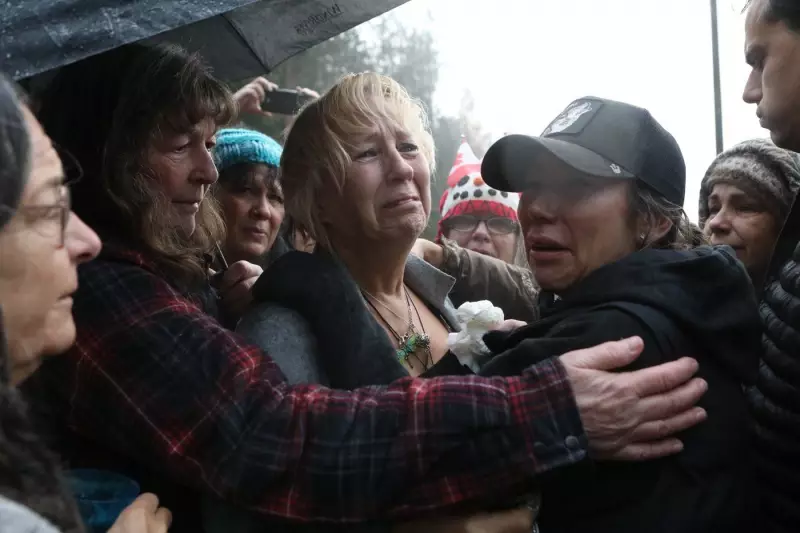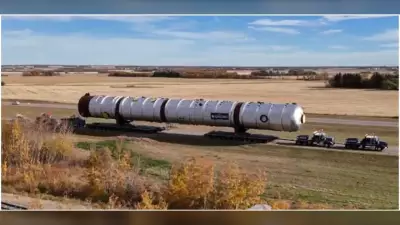
The quiet countryside of British Columbia was shattered by the sound of gunfire this week as a controversial mass culling of ostriches and emus proceeded at a Fraser Valley farm, despite desperate last-minute efforts by animal rights activists to halt the operation.
Emotional Standoff at Farm Gates
Dozens of protesters gathered outside the farm property, their voices rising in anguish as the sharp reports of firearms echoed from within the compound. The scene turned particularly emotional as activists documented what appeared to be workers loading bird carcasses into trailers throughout the day.
"We could hear the gunshots regularly, and it was absolutely heartbreaking," said one visibly distressed protester who had been monitoring the situation. "These magnificent creatures were being systematically eliminated while we stood by, powerless to stop it."
Regulatory Red Tape Frustrates Rescue Efforts
Animal rescue organizations revealed they had been negotiating for weeks to save the birds, with some groups even prepared to cover all transportation and care costs. However, bureaucratic hurdles and regulatory requirements ultimately prevented any meaningful intervention.
"We had everything lined up—transport, facilities, funding—but we kept hitting roadblocks," explained a representative from a local animal sanctuary. "The system failed these animals completely."
Farm Owner's Financial Dilemma
Property records indicate the farm is owned by a numbered company that recently lost a key contract with the University of British Columbia. This financial blow apparently made maintaining the large flock unsustainable.
Sources familiar with the situation suggest the owner faced an impossible choice: continue funding the care of hundreds of large birds without income, or proceed with the controversial cull.
Regulatory Framework and Industry Standards
The BC Ministry of Agriculture and Food has confirmed that the cull is proceeding under proper veterinary supervision, following established protocols for farm animal depopulation. Provincial regulations do permit such measures when deemed necessary by farm operators.
"While emotionally difficult, these actions are sometimes required in agricultural operations," stated a ministry representative. "Our primary concern is ensuring all procedures follow approved animal welfare standards."
Community Reaction and Ongoing Fallout
Local residents expressed shock and dismay at both the scale of the cull and the prolonged nature of the operation. Many reported hearing gunfire throughout multiple days, indicating the massive scope of the depopulation effort.
Animal welfare organizations are now calling for reforms to prevent similar situations, suggesting emergency intervention protocols for cases where rescue groups are willing and able to assume care of animals facing destruction.
The incident has sparked broader conversations about the ethics of exotic animal farming and the responsibilities of agricultural operations to plan for humane outcomes during business disruptions.






